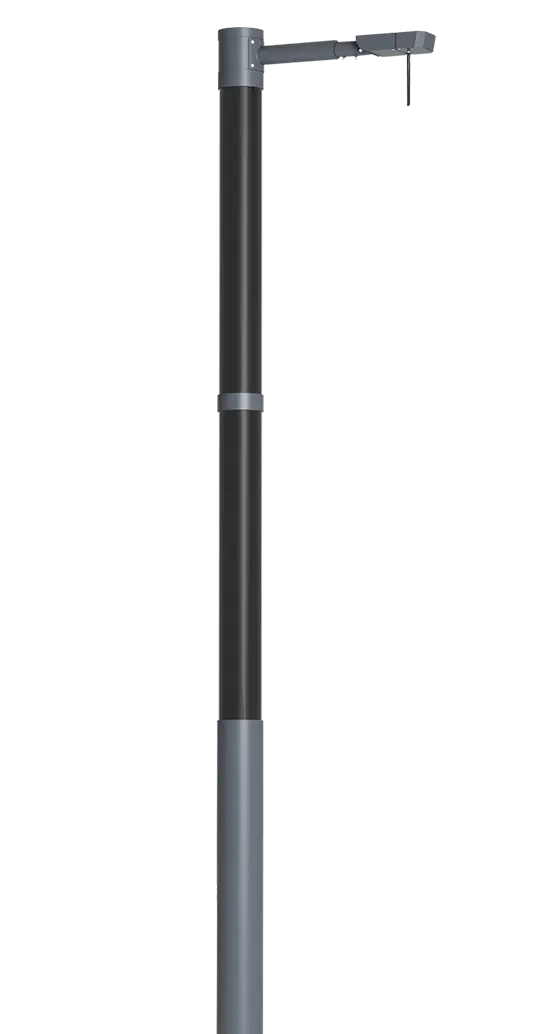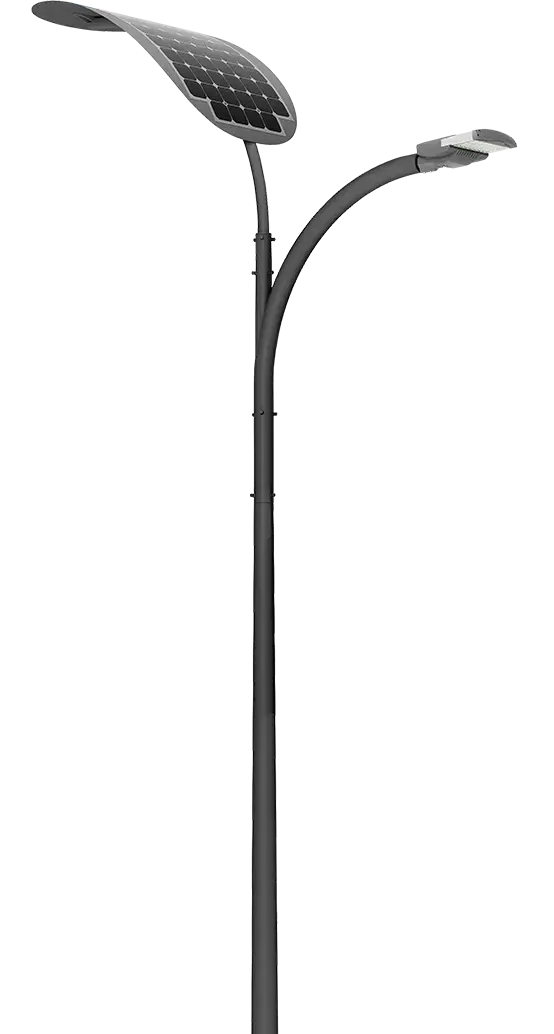How companies can utilize solar electricity efficiently

Table of Contents
Solar electricity has become increasingly popular in recent years as a source of clean, renewable energy. Companies of all sizes and across various industries are starting to realize the benefits of solar energy and are implementing solar powered solutions in various ways to become more energy efficient. Adopting solar electricity allows companies to significantly cut their energy costs, which can make a difference in long-term expenses. Besides financial savings, using solar energy also reduces a company’s environmental impact, helping to improve their public image as a sustainable, responsible organization. In this article, we’ll examine how companies can utilize solar electricity efficiently, including specific strategies for maximizing the benefits of solar power while reducing waste.
Benefits of Solar Energy for Companies
Using solar energy offers companies various advantages, from lowering energy costs to building a positive public image. Let’s look at some of the key benefits that make solar electricity a practical choice for businesses:
- Lower Energy Costs: One of the main reasons companies switch to solar is the potential for significant cost savings. Solar panels generate electricity directly from sunlight, which reduces the amount of power needed from the grid. This can lead to noticeable savings on energy bills, especially in areas with high electricity rates or plenty of sunshine.
- Reduced Carbon Footprint: Switching to solar energy helps reduce a company’s carbon emissions by relying less on fossil fuels. Solar power doesn’t produce harmful emissions or pollutants, which means it’s a cleaner energy option. For businesses committed to sustainability, using solar is a practical step toward achieving environmental goals and minimizing their environmental impact.
- Long-Term Energy Independence: Companies that invest in solar energy become less dependent on traditional energy sources, making them more resilient to changes in electricity prices. Over time, this can provide a level of energy stability, which helps businesses plan budgets with more confidence.

Companies can utilize solar electricity efficiently to reduce energy costs and promote sustainability.
These benefits show why solar energy is more than just an eco-friendly option-it’s also a practical, cost-saving choice for companies looking to grow responsibly. By embracing solar power, businesses can tap into the economic benefits of renewable energy, including lower energy costs, tax incentives, and long-term savings.
Key Strategies for Utilizing Solar Electricity Efficiently
To get the most out of solar energy, companies need to use it effectively. Simply installing solar panels isn’t enough; there are practical strategies that help businesses maximize solar electricity use and reduce waste. Here are some key approaches companies can adopt to use solar power more efficiently.
Implement Energy Storage Solutions
Storing solar energy allows companies to use power even when the sun isn’t shining, such as during the evening or on cloudy days. Battery storage systems collect excess energy produced during peak sunlight hours, which companies can then draw from when needed. This setup reduces reliance on the grid, helping companies achieve a more consistent and stable energy supply.
Use Smart Energy Management Systems
Smart energy management systems allow companies to track, adjust, and optimize their energy usage in real time. By analyzing patterns in energy demand, companies can align their energy consumption with peak solar production times, using more solar power when it’s most available. These systems also help detect and address inefficiencies, giving companies precise control over their energy use.
Schedule Energy-Intensive Tasks During Peak Sunlight Hours
Another effective way to maximize solar energy use is by scheduling high-energy tasks during peak sunlight hours. Tasks like manufacturing, heavy machinery operations, or running HVAC systems consume a lot of power, so performing them when solar production is at its highest reduces the need for grid electricity. This approach is simple but can make a substantial difference in energy efficiency.

Adopt Energy-Efficient Appliances and Technologies
Adopting energy-efficient appliances and technologies is a smart way for companies to boost solar electricity use. Energy-efficient equipment, like LED lighting and smart HVAC systems, reduces power consumption, allowing solar energy to cover a larger share of needs. For example, solar poles use up to 75% less energy and last 25 times longer than traditional bulbs. Smart HVAC systems, which adjust based on occupancy and temperature, can lower heating and cooling costs by 10% to 15%. Upgrading equipment also cuts down on wasted energy, making operations more sustainable.
Energy-efficient devices, such as low-energy computers and smart power strips, further support energy goals by limiting unnecessary power use. These technologies work effectively with solar power systems to create an optimized, balanced setup. Many companies find that the upfront cost of upgrading to efficient appliances pays off quickly through energy savings. Energy-efficient solutions don’t just save money-they help companies use solar energy in ways that benefit both the environment and the bottom line. For example, park solar street lights, which rely on solar power, help reduce energy consumption while providing effective lighting for public spaces. Embracing efficient technologies strengthens a company’s commitment to sustainability and builds a responsible public image. With energy costs on the rise, making this switch can provide long-term value and a more eco-friendly operation.

Maximize Solar Panel Performance
To maximize solar panel performance, companies should focus on routine maintenance and strategic placement. Regular cleaning is essential, as dust and dirt reduce energy output by up to 20%. Scheduling inspections every six months helps detect issues like loose connections or damaged panels before they impact efficiency. Positioning panels correctly also matters; south-facing installations receive the most sunlight in the Northern Hemisphere. Additionally, companies should ensure there are no obstructions, such as trees or tall structures, which block sunlight and reduce energy production. Companies should also consider the solar lighting degradation rate when using solar-powered lighting systems. Over time, the performance of solar lighting systems can decline, so it’s important to monitor and replace components as needed to maintain optimal efficiency.
It’s important for companies to know how much energy solar panels produce based on their system size and location. Monitoring solar systems in real-time is another effective way to identify and fix inefficiencies quickly. Many modern systems provide online dashboards, allowing companies to track performance and spot any drops in production. Companies can utilize solar electricity efficiently by focusing on these simple yet impactful steps. When panels work efficiently, businesses cut costs and reduce their environmental footprint. These actions not only improve solar performance but also help companies meet sustainability goals.

Use of Government Incentives and Rebates
Government incentives and rebates make it more affordable for companies to switch to solar energy. These programs offer financial support that can help offset the cost of installing solar systems. Let’s explore how these incentives work and how companies can benefit from them.
- Federal Tax Credit: The federal government offers a tax credit for businesses that install solar energy systems. Known as the Investment Tax Credit (ITC), this allows companies to deduct a percentage of the installation cost from their federal taxes. As of now, the ITC covers 30% of the installation cost. This tax credit significantly lowers the upfront cost, making solar energy more affordable.
- State and Local Incentives: Many states and local governments also offer their own incentives. These can include rebates, grants, or tax credits for companies installing solar panels. Each state has different programs, so it’s important for businesses to check what’s available in their area. In some regions, these local incentives can be combined with federal programs for even greater savings.
- Renewable Energy Certificates (RECs): Some companies can earn Renewable Energy Certificates (RECs) by producing solar energy. These certificates can be sold to other businesses or utilities that need to meet renewable energy requirements. RECs provide an additional revenue stream and offer companies another financial benefit when using solar power.
Government incentives and rebates make solar energy more accessible to businesses. Companies can utilize solar electricity efficiently while cutting costs and improving their bottom line.

Case Studies of Companies Effectively Using Solar
Many companies are already making the most of solar energy and reaping the benefits. From small businesses to large corporations, companies can utilize solar electricity efficiently to lower energy costs and promote sustainability. Let’s look at some real-world examples of businesses that have successfully adopted solar power.
Walmart
Walmart, one of the largest retailers in the world, has invested heavily in solar energy. The company has installed solar panels on the roofs of many of its stores, warehouses, and distribution centers. As of recent reports, Walmart has over 350 solar projects in the U.S. These efforts have helped Walmart reduce energy costs and contribute to its sustainability goals. By using solar power, the company cuts down on its reliance on traditional energy sources, ultimately lowering its carbon footprint.
Google is another company leading the way in solar adoption. Google’s commitment to renewable energy is strong, and it has been purchasing solar power for its data centers. In addition to buying renewable energy, Google has installed solar panels on its campuses. By combining these efforts, the company has been able to operate completely on renewable energy, meeting its long-term sustainability targets.
IKEA
IKEA, known for its commitment to sustainability, has taken substantial steps to integrate solar energy into its operations. The company has installed solar panels on many of its stores and warehouses worldwide. IKEA has also invested in large-scale solar farms to support its operations. This focus on solar energy helps IKEA reduce its energy costs while supporting its mission to become a climate-positive business by 2030. Companies are also offering solar power options to their employees as a benefit, for example, solar power sharing programs where employees can invest in solar power systems, and companies assist with installation and maintenance and lower electricity costs.
Future Trends in Solar Technology
As solar energy continues to grow in popularity, new advancements in technology promise to make it even more efficient and affordable for businesses. The future of solar technology looks bright, with innovations that could change how companies utilize solar electricity.
Installing solar panels on the building
One of the most common ways that companies can utilize solar electricity is by installing solar panels on their buildings. This allows them to generate their own electricity and reduce their dependence on traditional fossil fuels. Not only does this help to reduce the company’s carbon footprint, but it can also save them money on energy costs in the long run.
Solar parking lots
Solar parking lots, also known as solar carports, are becoming a popular option for industries and factories looking for ways to generate solar electricity while also providing shade for parked cars. These solar powered parking lots offer a range of benefits, including environmental protection, cost savings on energy, a reduction in emissions, and improved air quality. Not only do these solar panels serve a practical purpose, but they also enhance the aesthetic of the parking lot.
Solar-powered street lights
Another way that companies can utilize solar electricity is through the use of solar-powered systems for specific functions within the company. For example, some companies are using solar powered street lights to reduce their energy costs associated with lighting. Others are using solar-powered air conditioning systems to keep their buildings cool. These systems not only save money on energy costs, but they can also improve the efficiency and reliability of the specific function they power.

Discover How Companies Can Utilize Solar Electricity Efficiently
Overall, there are many ways that companies can utilize solar electricity efficiently to become more energy efficient and reduce their environmental impact. From installing solar panels on their buildings to offering solar power solutions as a product or service, the use of solar electricity is becoming increasingly common in the business world. For example, some companies are even using residential solar street lights to improve outdoor lighting while reducing energy costs. Companies can take advantage of incentives, adopt energy-efficient technologies, and explore new solar trends to maximize their energy savings. As solar technology advances, businesses will have even more opportunities to reduce costs and increase sustainability. Implementing solar energy is not just good for the environment; it can also lead to long-term savings and a stronger business reputation. With the right strategies, companies can make a significant impact on their energy use and contribute to a cleaner, greener future.




